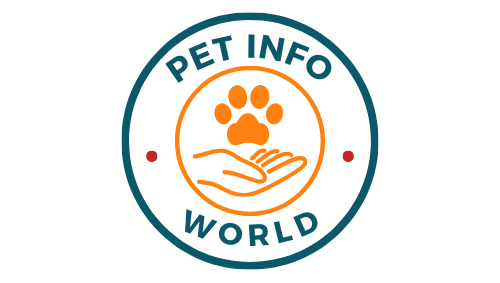If you want to keep your furry friend healthy and happy, vaccinations are one of the most important measures you can take. But with so many different vaccinations available, it can be overwhelming to decipher which ones are truly essential for your pet’s well-being. In this article, we will explore the key vaccinations that play a crucial role in safeguarding your pet’s health, ensuring they stay protected from harmful diseases. From rabies to distemper, we’ll provide you with the essential information you need to make informed decisions about your pet’s vaccination schedule. So, let’s explore the world of pet vaccinations together and ensure your four-legged companion stays in the best of health!
What Vaccinations Are Essential for My Pet’s Health?

Why Vaccinations are Important for Pets
Taking care of your pet’s health involves more than just feeding them, giving them love, and providing a safe environment. Vaccinations are an essential part of keeping your furry friend healthy and protected from various diseases. Just like humans, animals can also get sick and suffer from serious illnesses. By ensuring that your pet is up to date on their vaccinations, you are not only safeguarding their well-being but also preventing the spread of potentially dangerous diseases to other animals and even to humans.
Core Vaccinations for Dogs
When it comes to dogs, there are several core vaccinations that are considered necessary for their overall health and protection.
1. Distemper
Distemper is a highly contagious viral disease that affects a dog’s respiratory, gastrointestinal, and nervous systems. It can be fatal, especially in puppies. Vaccination against distemper is a vital step in preventing the spread of this disease, and it is typically administered as a combination vaccine along with other core vaccinations.
2. Rabies
Rabies is a deadly viral disease that affects the central nervous system of animals, including dogs. It can be transmitted to humans through bites or scratches from an infected animal. Rabies vaccination is typically required by law in most regions due to its potential threat to public health. This vaccine is usually given to dogs as a series of shots.
3. Parvovirus
Parvovirus is a highly contagious and potentially fatal virus that primarily affects puppies, but can also affect adult dogs. It attacks the gastrointestinal tract and can cause severe dehydration, vomiting, and diarrhea. Vaccinating your dog against parvovirus is crucial for their health, and it is usually administered along with other core vaccines.
4. Adenovirus
Adenovirus, specifically canine infectious hepatitis (CIH), is a contagious viral disease that affects a dog’s liver, kidneys, and eyes. It can cause symptoms such as fever, vomiting, and abdominal pain. Vaccinating your dog against adenovirus is essential to prevent the spread of this disease and protect their overall health.
Non-Core Vaccinations for Dogs
In addition to the core vaccinations, there are also non-core vaccines that may be recommended based on your dog’s individual risk factors and lifestyle.
1. Bordetella Bronchiseptica
Also known as kennel cough, Bordetella bronchiseptica is a highly contagious respiratory infection commonly contracted in places where dogs are in close contact, such as boarding facilities or dog parks. Vaccination against Bordetella is often recommended if your dog frequently interacts with other dogs or if they will be in environments where the disease is more prevalent.
2. Leptospirosis
Leptospirosis is a bacterial infection that can be transmitted to both animals and humans. It spreads through contact with infected urine, water, or soil. The leptospirosis vaccine is recommended for dogs that live in or visit areas with a higher risk of exposure, such as those with a lot of wildlife or bodies of water.
3. Lyme Disease
Lyme disease is transmitted through tick bites and can affect both dogs and humans. It can cause symptoms such as lameness, fever, and fatigue. If you live in an area where ticks are prevalent or if you frequently take your dog hiking or camping, vaccinating against Lyme disease may be recommended.
Core Vaccinations for Cats
Similar to dogs, cats also require core vaccinations to protect them from common diseases. These vaccines are considered essential for their well-being.
1. Feline Panleukopenia Virus
Feline panleukopenia, also known as feline distemper, is a highly contagious and potentially fatal viral disease that affects cats. It can cause symptoms such as fever, vomiting, diarrhea, and depletion of white blood cells. Vaccinating your cat against panleukopenia is crucial for their health, especially if they come into contact with other cats.
2. Feline Herpesvirus-1
Feline herpesvirus-1 is a respiratory infection that can cause symptoms such as sneezing, coughing, and eye discharge in cats. It is highly contagious and can lead to more severe respiratory complications. Vaccinating your cat against herpesvirus-1 is essential to protect their respiratory health and prevent the spread of the virus.
3. Feline Calicivirus
Feline calicivirus is another common respiratory infection in cats. It can cause symptoms such as sneezing, oral ulcers, and joint pain. Vaccination against calicivirus is important to protect your cat’s respiratory system and overall health.
4. Rabies
Just like dogs, cats are also susceptible to rabies, a deadly viral disease that affects the central nervous system. Vaccinating your cat against rabies is not only crucial for their well-being but also required by law in many regions.
Non-Core Vaccinations for Cats
Apart from the core vaccines, there are several non-core vaccines that are recommended based on your cat’s lifestyle and individual risk factors.

1. Feline Leukemia Virus
Feline leukemia virus (FeLV) is a contagious and often fatal disease in cats. It attacks the immune system and can lead to various health issues. Vaccinating your cat against FeLV is important, especially if they go outdoors or come into contact with other cats.
2. Chlamydia Felis
Chlamydia felis is a bacterial infection that primarily affects a cat’s eyes and respiratory system. It can cause symptoms such as conjunctivitis and respiratory distress. Vaccination against chlamydia felis is recommended for cats that are at higher risk of exposure, such as those living in multi-cat households.
3. Bordetella Bronchiseptica
Similar to dogs, Bordetella bronchiseptica can cause respiratory infections in cats. Vaccinating against this bacterium is recommended for cats that have a higher risk of exposure or those in environments where the disease is prevalent.
4. Feline Immunodeficiency Virus
Feline immunodeficiency virus (FIV) is a viral disease that weakens a cat’s immune system, making them more susceptible to other infections. Vaccinating against FIV is crucial for cats that have a higher risk of exposure, such as those that roam outdoors and may come into contact with infected cats.
Vaccination Schedules for Dogs and Cats
To ensure optimal protection, it is important to follow the recommended vaccination schedules for both dogs and cats.
1. Puppy and Kitten Vaccination Schedule
Puppies and kittens typically receive their first vaccinations at around 6 to 8 weeks of age. These initial vaccines help protect against highly contagious diseases they may be susceptible to at a young age. Boosters are then given at regular intervals, usually every 3 to 4 weeks until they are around 16 weeks old.
2. Annual Booster Shots
After the initial puppy or kitten series, dogs and cats typically require booster shots on an annual basis or as recommended by your veterinarian. These booster vaccinations help maintain their immunity against diseases and keep them protected as they grow older.
3. Lifestyle-Based Vaccination Recommendations
In addition to the core vaccines, your veterinarian may recommend non-core vaccinations based on your pet’s lifestyle and specific risk factors. For example, if your dog frequently visits boarding facilities or dog parks, they may need additional vaccinations to protect against diseases that are more common in those environments. Similarly, if your cat goes outdoors, they may require vaccinations to protect against diseases transmitted by other cats or wildlife.
Potential Side Effects and Risks
While vaccines are generally safe, there can be potential side effects and risks associated with their administration. It is important to be aware of these possibilities.
1. Allergic Reactions
Some pets may experience allergic reactions to vaccines, although this is relatively rare. Signs of an allergic reaction may include facial swelling, hives, difficulty breathing, or collapse. It is important to consult your veterinarian immediately if you notice any unusual symptoms following vaccination.
2. Vaccine-Associated Sarcoma
In rare cases, cats may develop a type of cancer known as vaccine-associated sarcoma at the site of the vaccine injection. This risk is extremely low but should be taken into consideration. Your veterinarian can discuss the risk factors and potential preventive measures for this rare occurrence.
3. Mild Side Effects
Mild side effects such as lethargy, mild fever, or decreased appetite can occur after vaccination. These side effects are typically temporary and should resolve within a few days. However, if they persist or worsen, it is important to contact your veterinarian.
Conclusion
Vaccinations play a crucial role in keeping your pet healthy and protected against various diseases. By ensuring that your pet is up to date on their vaccinations, you are not only safeguarding their well-being but also contributing to the overall health and safety of the animal community. Remember to consult your veterinarian to determine the appropriate vaccination schedule and to address any specific concerns or questions you may have regarding your pet’s vaccination needs. Your furry friend will thank you for taking the necessary steps to protect their health and ensure a happy and long life together.

